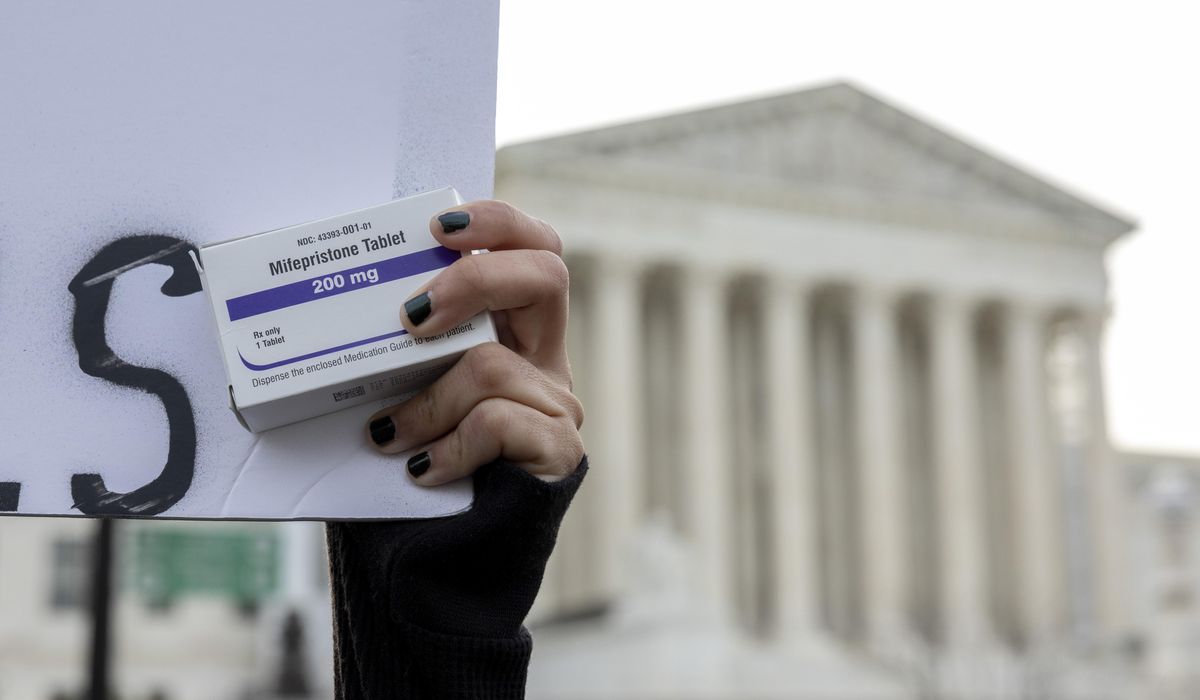


The latest Knights of Columbus-Marist Poll shows attitudes toward legal abortion substantially unchanged among Americans as thousands of pro-life protesters converge Friday on the National Mall.
The annual survey traditionally friendly to pro-lifers found most Americans responding to a questionnaire this month favored legalized abortion with some limits, reflecting no change from the status quo that held sway before the Supreme Court overturned Roe v. Wade in 2022.
Among the 1,387 adults who participated online or by telephone, 62% identified themselves as pro-choice. Another 60% said abortion should only be legal up to three months of pregnancy or with exceptions for rape, incest, and the health of the mother.
These findings are consistent with long-term trends the poll has tracked for years, Marist said in a summary.
“This year’s survey results show that Americans are once again firm in their belief that abortion should be significantly limited yet laws should include exceptions for rape, incest, or to save the life of the mother,” said Barbara L. Carvalho, director of the Marist Poll. “This consistent year-over-year trend found in the annual Knights of Columbus-Marist Poll has continued, now nearly three years after the Supreme Court’s landmark Dobbs decision.”
Reached for comment, some abortion researchers on either side of the issue offered differing interpretations of the findings.
“Kamala Harris and other Democratic candidates spent millions of dollars promoting legal abortion during the 2024 election,” said Michael New, a professor of social research at The Catholic University of America and affiliated scholar at the pro-life Charlotte Lozier Institute. “However, there was no significant gain in support for legal abortion.”
“I do think it’s inaccurate to say the public wants abortion ‘significantly limited’ and, if anything, Dobbs has made people want the government to be less involved,” said Tresa Undem, a pollster at left-leaning PerryUndem. “Lots of data on that.”
In a survey last year, PerryUndem found that 40% of adults said abortion should not be regulated.
Mary Ziegler, a leading historian of the legal abortion debate, said post-Dobbs state ballot initiatives have pushed voters to choose between extremes of restricting and expanding access.
“I think most people are supportive of abortion access early in pregnancy,” said Ms. Ziegler, a law professor at the University of California, Davis. “The polling is messy later in pregnancy.”
Marist releases its poll each year ahead of the annual March for Life in Washington, which features a noon rally on the National Mall followed by a protest walk to the Supreme Court.
High-profile Republicans address the protesters each year. Friday’s 52nd annual rally is scheduled to feature a video appearance by President Trump and speeches by Vice President J.D. Vance, Senate Majority Leader John Thune and House Speaker Mike Johnson.
In a statement Thursday, the March for Life said rallygoers must go through “TSA style screening” with enhanced security due to Vance’s inclusion. Protesters with sign poles, aerosol sprays, balloons and “weapons of any kind” will not be admitted.
“We are thrilled that Vice President Vance has chosen the National March for Life for his first public appearance in his new role — a sign of his commitment to standing up for life,” said Jeanne Mancini and Jennie Bradley Lichter, president and president-elect of the March for Life.
Bethany Hamilton, a professional surfer and pro-life advocate, will be among the speakers addressing this year’s theme, “Life: Why we march.”
Pro-lifers have labored in recent years to redefine the purpose of the national march to the steps of the Supreme Court, which started as a protest against the Roe v. Wade ruling that legalized abortion nationally on Jan. 22, 1973.
This year’s theme stresses “acknowledging the humanity of each person, while also highlighting the need to protect and support both mother and child through the thousands of resources available to them.”
While Mr. Trump has insisted on keeping abortion policy at the state level since Dobbs, pro-life activists and their allies in Congress have kept pushing for federal restrictions. On Wednesday, Senate Democrats defeated a Republican bill that would have required doctors to care for babies “born alive” during abortions.
According to legal scholars, it’s unlikely Dobbs will end national policy clashes on abortion as Mr. Trump hopes.
“Dobbs has not ended the debate, even at the federal level,” said Ronald J. Rychlak, a professor of law and government and former associate dean at the University of Mississippi. “Numerous Americans now have had or participated in some way with abortions. They do not want to hear that they were involved in taking an innocent human life.”
• Sean Salai can be reached at ssalai@washingtontimes.com.
